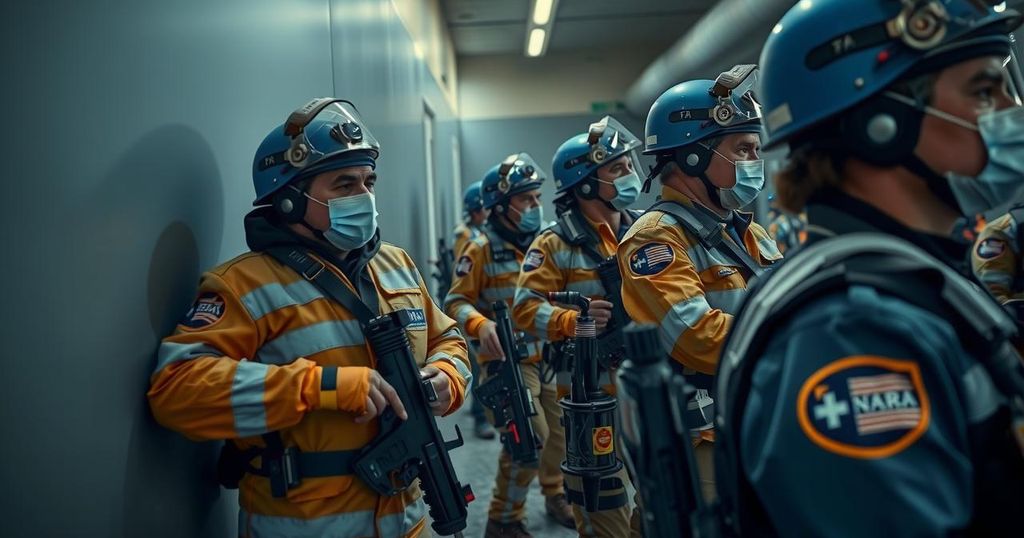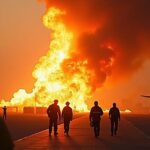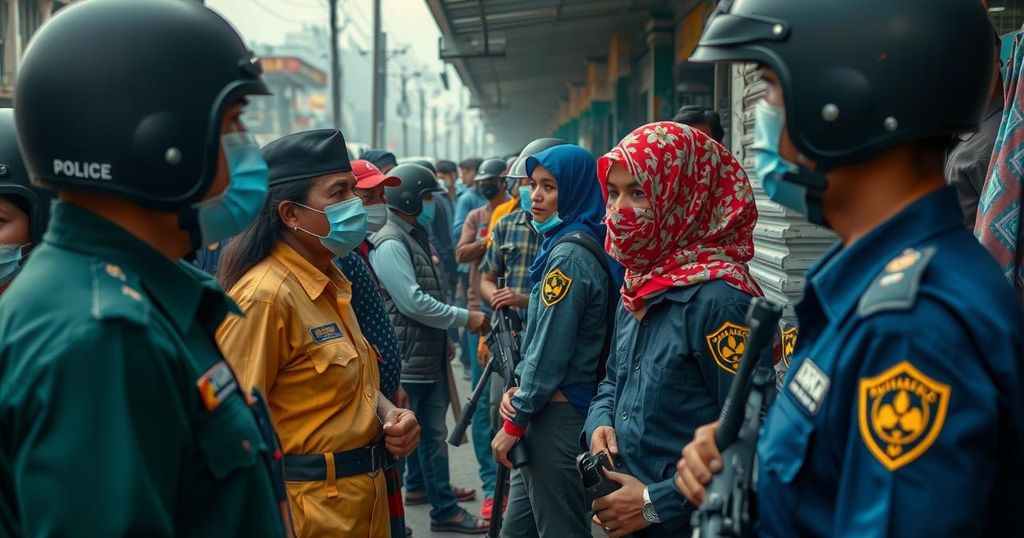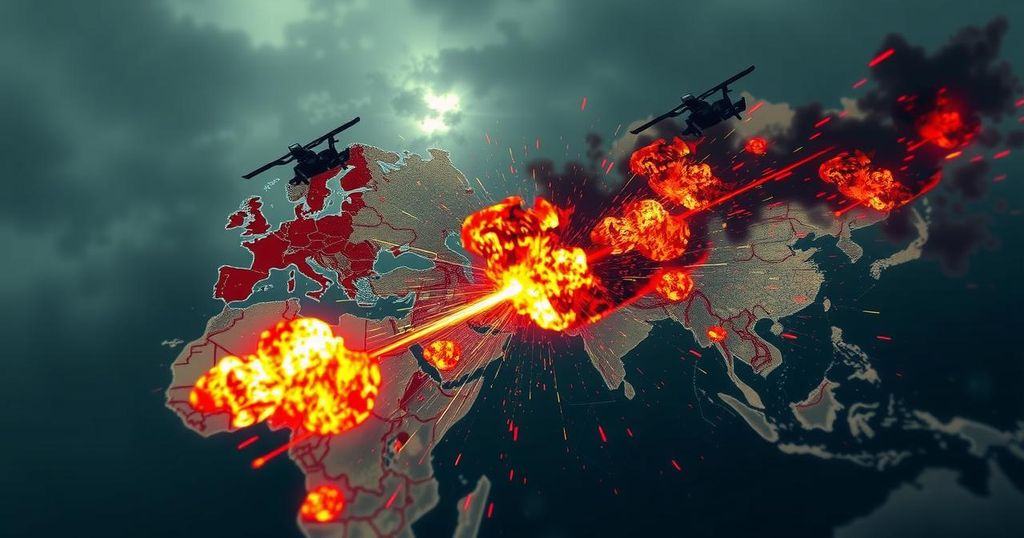Palestinian Emergency Workers Withdraw from Northern Gaza Due to Targeted Attacks by IDF
Palestinian emergency workers have withdrawn from northern Gaza due to being targeted by Israeli Defense Forces during rescue operations. Mahmoud Basel, a Civil Defence spokesperson, indicated that the military’s actions hinder their ability to provide humanitarian aid amidst heavy bombardment in the region. The ongoing conflict has displaced millions and resulted in a significant death toll among Palestinians. International efforts are being made to address the humanitarian crisis as Secretary of State Antony Blinken continues to seek a ceasefire.
In a significant turn of events, Palestinian emergency workers announced their withdrawal from northern Gaza, citing direct targeting by Israeli Defense Forces (IDF) as the reason for their decision. The Palestinian Civil Defence agency, responsible for first response and search and rescue operations, revealed that these attacks have severely impeded their ability to assist individuals trapped under rubble or in dire need of medical aid. At a press conference held at the Al-Ahli (Al-Ma’madani) Arab Hospital, spokesperson Mahmoud Basel stated, “We are now announcing that the northern Gaza Strip, all of the northern district, the Civil Defence is not providing any humanitarian services, any medical services [in the area].” This declaration underscores the increasingly perilous environment faced by first responders amid the ongoing conflict, particularly in light of reported detentions and attacks on civil defence personnel by the Israeli military. The situation escalated as the Israel-Hamas conflict intensified, with northern Gaza bearing the brunt of the violence. Recent reports indicated that in the past week alone, eight members of the Civil Defence were either targeted by drones or detained at the hands of the IDF while attempting to provide assistance at strike sites. Basel recounted a disheartening incident where the team was instructed by the Israeli army to head towards the Indonesian Hospital but came under fire, resulting in injuries and loss of communication with other members. Moreover, a separate team had to halt their efforts to rescue injured civilians due to severe bombardment. According to Basel, the ongoing military operations are hindering humanitarian assistance, with the IDF effectively obstructing rescue efforts. The IDF, in a response to these allegations, claimed that its forces only apprehend individuals suspected of terrorist activities and that those clear of such suspicions are released. They emphasized adherence to the Law of Armed Conflict and have procedures in place for conducting attacks on military targets. Current assessments indicate that approximately 400,000 individuals remain trapped in northern Gaza, amidst worsening conditions as the IDF’s campaign, which began in early October, continues. The Gaza health ministry reported that the death toll has escalated to nearly 43,000 Palestinians since the onset of hostilities. UNRWA Chief Philippe Lazzarini highlighted the humanitarian crisis, while UN Secretary General Antonio Guterres stressed the urgent need for the protection of civilians and access to humanitarian aid. As efforts continue to negotiate a ceasefire through U.S. Secretary of State Antony Blinken’s diplomatic endeavors, the situation remains dire with three hospitals, Al-Awda, Indonesian, and Kamal Adwan, reportedly under siege and serving as shelters for numerous displaced civilians. The time-sensitive nature of the crisis calls for immediate international attention to ensure the safety and aid for affected populations.
The current conflict in Gaza has its roots in longstanding tensions between Israeli forces and Hamas, which escalated sharply after a Hamas attack on Israel on October 7, 2023. This led to a significant military response by the IDF, particularly targeting Hamas operatives in Gaza. The humanitarian situation has deteriorated dramatically as the conflict has progressed, with vast numbers of displaced individuals, many forced to seek refuge in precarious and unsafe conditions. Palestinian Civil Defence workers have faced unprecedented challenges in delivering emergency services amidst continuous airstrikes and military operations.
The withdrawal of Palestinian emergency workers from northern Gaza highlights the grave humanitarian crisis unfolding as a result of the ongoing conflict. Targeted attacks on first responders, compounded by alleged detentions and a lack of essential supplies, have effectively paralyzed rescue operations. As the situation escalates, urgent international intervention is required to facilitate the protection of civilians, safeguard humanitarian efforts, and address the urgent needs of an increasingly vulnerable population. With large numbers of displaced individuals and dire conditions reported in hospitals, the international community must prioritize a solution that allows for the provision of critical aid and supports the safety of all individuals affected by this conflict.
Original Source: www.cbc.ca








Post Comment